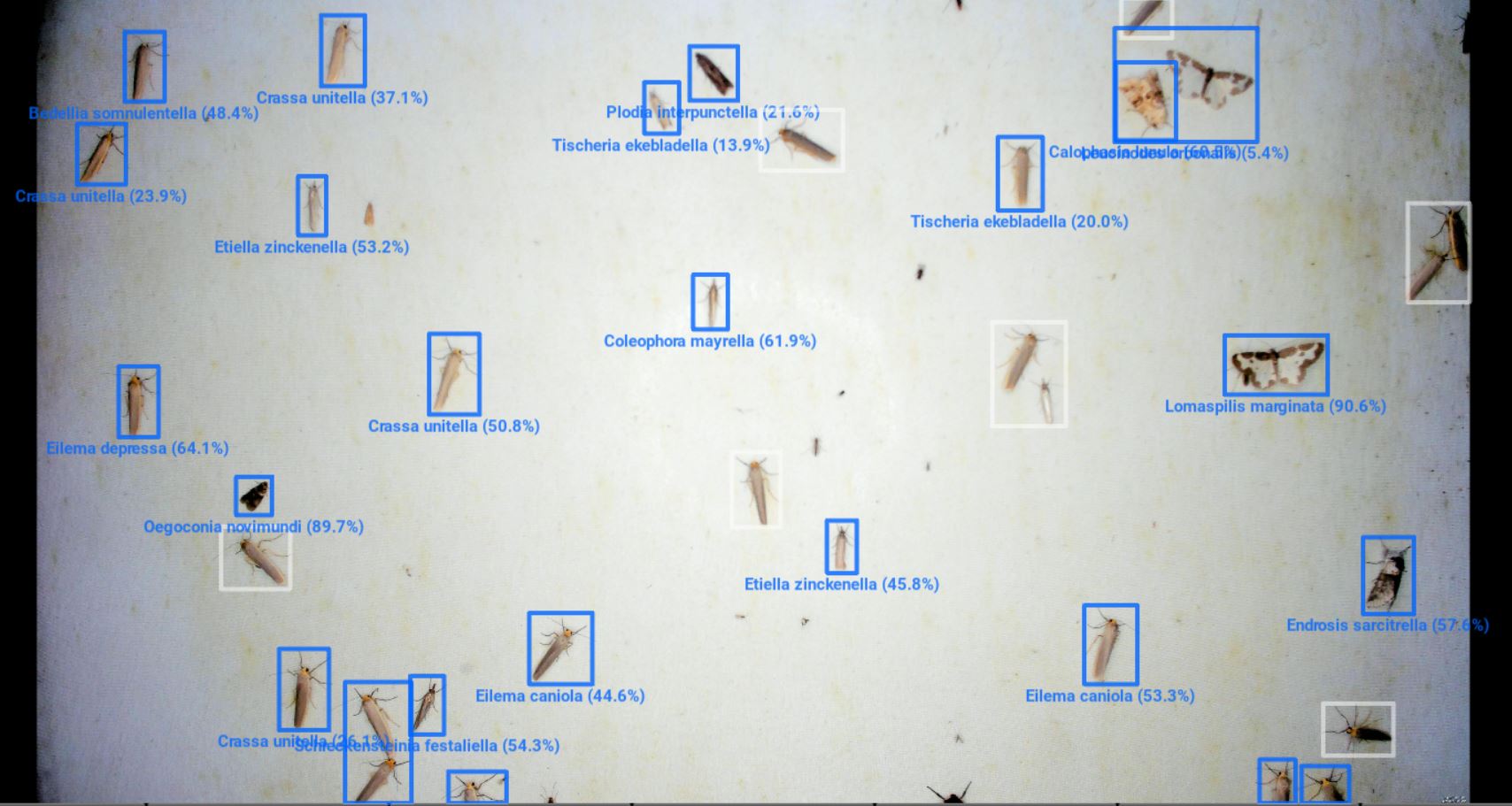
Ali Miraj 12pm - 3pm
7 May 2024, 12:54

UK researchers said they are working with partners across the world to trial monitoring equipment in some of the most biodiverse places.
Artificial intelligence (AI) can transform species monitoring to help understand biodiversity threats and measure progress towards nature targets, scientists have said.
The UK Centre for Ecology & Hydrology (UKCEH) said it is working with partners across the world to trial equipment in some of the most biodiverse places in North America, Europe and the tropics.
The solar-powered automated monitoring stations, which can operate without humans for many months, use high-resolution cameras to photograph insects and acoustic equipment to record the calls of birds and bats.
The scientists then use AI software by training computer systems to recognise species from images and recordings.
NEW: Automated sensors have exciting potential to transform insect monitoring across the globe and help tackle the biodiversity crisis 🦋
Researchers have set out a new template for AI-assisted, image-based monitoring of nocturnal insects: https://t.co/XbMRkgm8PW pic.twitter.com/pG4T9v2fPG
— UK Centre for Ecology & Hydrology (@UK_CEH) May 7, 2024
The UKCEH said the development of the camera systems, recording equipment and recognition software is still at a relatively early stage, but initial trials have been encouraging.
Professor David Roy, a UKCEH and University of Exeter ecologist, said: “The widespread deployment of automated sensors combined with identification of species using AI can transform our understanding of the impacts of environmental change on wildlife and measure progress towards national and international biodiversity targets.
“This will enable us to identify where biodiversity is under threat, the main drivers of change, and to inform solutions to guide local habitat management and address the global biodiversity crisis.”
It comes as a shortage of experts means there are major gaps in scientists’ understanding of where species occur, how populations are changing and what is causing declines and local extinctions, according to the UKCEH.
The organisation said there is an acute shortage of data on insects globally, even though they make up four-fifths of animal life and are vital for healthy ecosystems and food production.

The automated monitoring stations would mean a large amount of long-term, standardised and verifiable data could be generated and processed without labour-intensive field surveys or identification, it added.
The researchers have published a study setting out a template for AI-assisted, image-based monitoring of nocturnal insects, as part of developing a standardised method of automated sensing worldwide.
They said the initial research focuses on insects due to their crucial roles in ecosystems, such as nutrient cycling, food for other creatures, pollination and natural pest control.
The scientists are deploying the monitoring stations in regions that are under-researched in terms of insects, such as Argentina, Panama, Costa Rica, Singapore, Japan and Kenya, as well as in Europe and North America.
From the biodiversity monitoring stations, the researchers access images and recordings remotely, using computers in their offices to process the data and identify species via AI.
However, UKCEH and the Alan Turing Institute are also developing edge processing which will enable images to be analysed on the device, rather than being downloaded and processed later.
Dr Oliver Strickson, senior research software engineer at Turing, said: “This will enable non-expert volunteers to use automated systems to produce lots of data about species on many sites, providing a massive step-change in global biodiversity monitoring.
In terms of the UK, the UKCEH has installed automated camera traps and bioacoustic equipment in farms to monitor the presence of insects, birds, amphibians, bats and small mammals as part of the AgZero+ five-year research programme and to access the effectiveness of British agri-environment schemes.